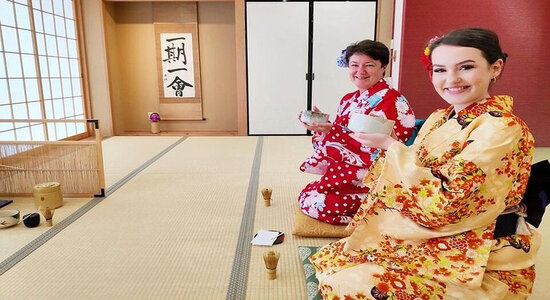Authentic Traditional Japanese Tea Ceremonies
The traditional Japanese tea ceremony, known as “chanoyu” or “sado,” is a centuries-old cultural practice that celebrates harmony, respect, and mindfulness through the ritualistic preparation and consumption of matcha, powdered green tea· Rooted in Zen Buddhism and influenced by principles of simplicity, humility, and tranquility, the tea ceremony is a profound expression of Japanese aesthetics and spirituality· Participating in an authentic traditional Japanese tea ceremony offers a unique opportunity to experience Japanese culture firsthand and connect with the essence of tea as a symbol of hospitality, grace, and serenity·
Central to the Japanese tea ceremony is the preparation and serving of matcha, a finely ground green tea powder made from shade-grown tea leaves· The tea ceremony is typically conducted in a dedicated tea room or tearoom, known as a “chashitsu,” which is designed to evoke a sense of tranquility and harmony with nature· Guests are invited to enter the tearoom and take their seats, where they are greeted by the host and invited to observe the meticulous process of preparing and serving matcha·
The tea ceremony begins with the host cleansing and purifying the utensils used in the preparation of matcha, including the tea bowl, tea whisk, and tea scoop, in a ritual known as “chakai·” The host then carefully measures out the matcha powder and hot water, whisking the tea to a frothy consistency with a bamboo whisk in a precise and graceful manner· The prepared matcha is then served to each guest in a series of ritualized movements, symbolizing respect, gratitude, and connection·
In addition to the ceremonial preparation and serving of matcha, the Japanese tea ceremony also includes elements of hospitality, etiquette, and aesthetics that contribute to the overall experience· Guests are encouraged to observe proper etiquette and manners, such as bowing to the host and receiving the tea bowl with both hands, as a sign of respect and gratitude· The tearoom itself is often adorned with seasonal decorations and floral arrangements that reflect the changing seasons and evoke a sense of harmony with nature·
Furthermore, the Japanese tea ceremony emphasizes the importance of mindfulness and presence in the moment, encouraging participants to cultivate a sense of awareness and appreciation for the simple pleasures of life· By focusing on the ritualized actions of preparing and consuming matcha, participants can quiet the mind, deepen their connection to the present moment, and experience a profound sense of peace and tranquility·
In conclusion, participating in an authentic traditional Japanese tea ceremony offers a unique opportunity to experience Japanese culture and spirituality firsthand while celebrating the beauty and simplicity of tea as a symbol of harmony, respect, and mindfulness· Whether you are a seasoned tea enthusiast or new to the world of Japanese tea culture, the tea ceremony invites you to slow down, savor the moment, and connect with the essence of tea and the beauty of life itself






